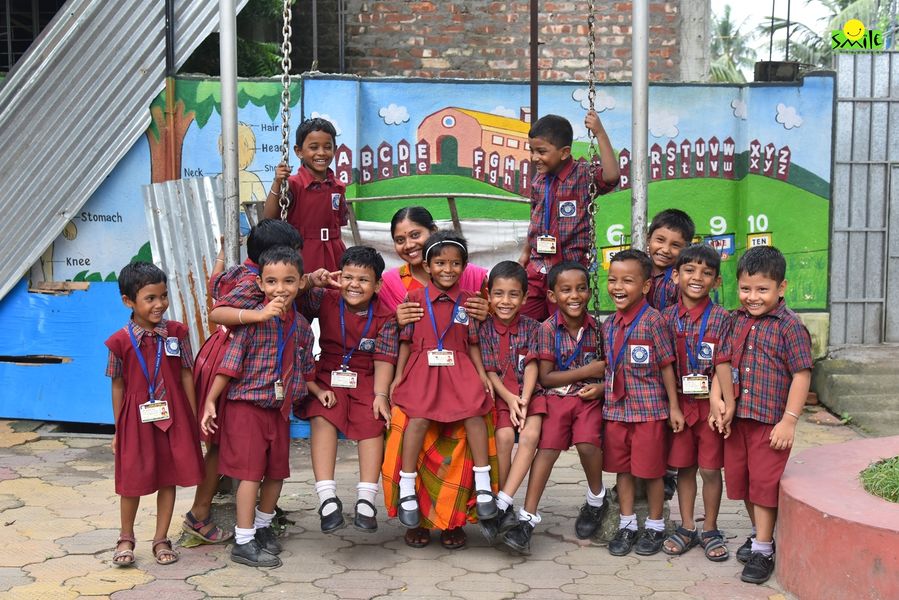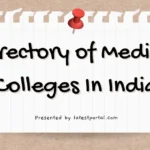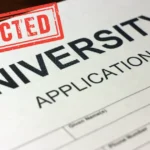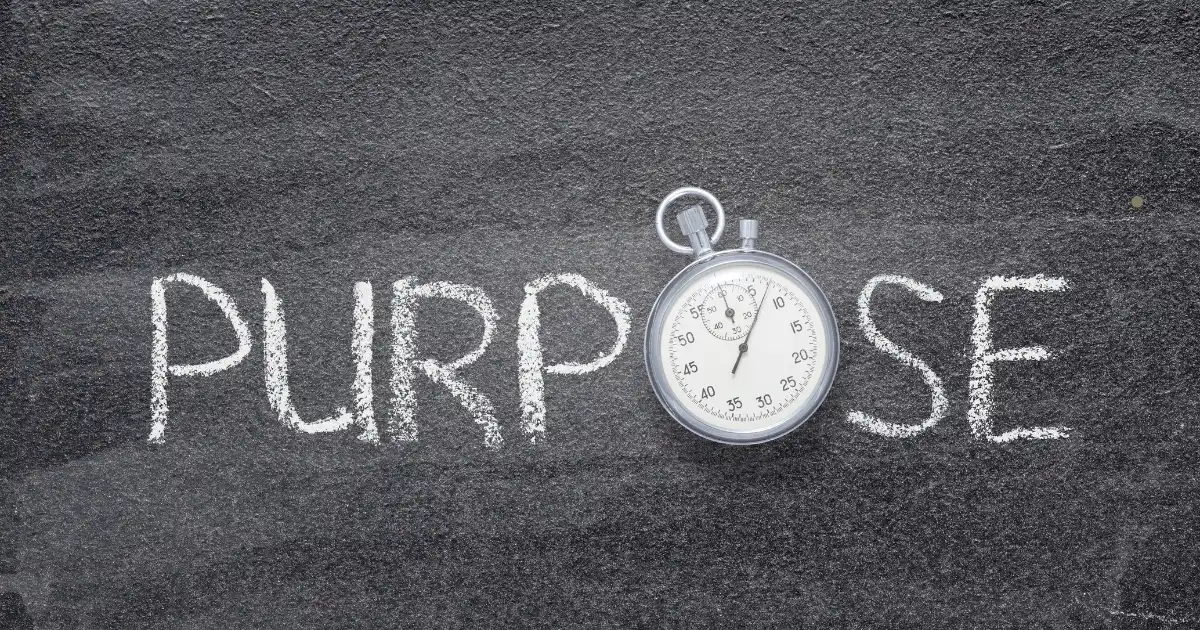The purpose of education is to empower individuals with knowledge and skills. It prepares people to contribute effectively to society.
Education serves as a foundation for personal and professional growth. It fosters critical thinking, creativity, and problem-solving abilities. Through education, individuals gain the competencies needed to navigate life’s challenges and opportunities. Schools and educational institutions play a crucial role in shaping values, ethics, and social responsibilities.
Education also promotes cultural understanding and global awareness. It equips people to make informed decisions and lead fulfilling lives. By investing in education, societies can achieve sustainable development and innovation. Ultimately, education is a powerful tool for achieving personal aspirations and collective progress.
Purpose Of Education
The purpose of education has evolved over time. Initially, education was about basic survival skills. Today, it encompasses a broad range of goals and ambitions. Let’s explore the different perspectives on the purpose of education.
Historical Perspectives
Historically, education focused on survival and practical skills. Ancient civilizations taught hunting, farming, and tool-making. These skills ensured community survival.
In Ancient Greece, education included philosophy and the arts. This was the birth of formal schooling. The goal was to create well-rounded citizens. During the Middle Ages, education became religious. Monasteries preserved knowledge and taught reading and writing. This period valued moral and spiritual instruction.
Modern Views
Today, education serves multiple purposes. It aims to develop critical thinking and problem-solving skills. Schools teach students to analyze and understand complex issues. Education also focuses on personal development. It helps individuals discover their interests and talents. This leads to personal satisfaction and career success.
Social development is another key purpose. Schools teach teamwork and communication. These skills are vital in the modern workplace. Lastly, education promotes global citizenship. It encourages understanding and respect for different cultures. This is crucial in our interconnected world.
Unlocking Potential
Education is a key that unlocks human potential. It empowers individuals to reach their goals and dreams. It opens doors to opportunities and new horizons.
Personal Growth
Education fosters personal growth by encouraging curiosity and creativity. Students learn to think critically and solve problems. They discover their strengths and passions.
Through education, individuals gain confidence and self-awareness. They understand their values and beliefs. This foundation helps them navigate life’s challenges with resilience.
Professional Development
Education also plays a vital role in professional development. It equips people with skills needed for the job market. These skills include communication, teamwork, and technical knowledge.
With education, individuals can pursue career advancement. They can gain certifications and degrees that open up better job prospects. This leads to increased earning potential and job satisfaction.
| Personal Growth | Professional Development |
|---|---|
| Encourages curiosity | Provides job skills |
| Fosters creativity | Enhances career prospects |
| Builds confidence | Increases earning potential |
| Develops self-awareness | Facilitates job satisfaction |
Critical Thinking
Critical thinking is a vital part of education. It helps students analyze facts and form a judgment. It encourages curiosity and a deeper understanding of the world. Through critical thinking, students learn to question information and assess situations logically.
Problem-solving Skills
Problem-solving skills are crucial in everyday life. They help students find solutions to challenges. Education fosters these skills through different subjects and activities.
- Math teaches logical thinking.
- Science encourages experimentation and inquiry.
- Group projects promote teamwork and collaboration.
These skills prepare students for real-life problems. They learn to approach issues methodically and creatively.
Decision-making
Decision-making is another key aspect of education. It involves evaluating options and making choices. Good decision-making skills lead to better outcomes in life.
- Weigh the pros and cons.
- Consider the impact of each choice.
- Make informed decisions based on evidence.
Education provides the tools to make sound decisions. It teaches students to think before they act. This skill is valuable in personal and professional life.
Creativity And Innovation
Education serves many purposes, but one of the most vital is cultivating creativity and innovation. These skills are essential in today’s ever-changing world. They empower individuals to think outside the box and solve complex problems.
Fostering Imagination
Imagination is the cornerstone of creativity. Schools should encourage students to dream big and explore new ideas. By providing a supportive environment, educators can help students expand their horizons. Ways to foster imagination include:
- Creative writing exercises
- Art and music classes
- Interactive storytelling
These activities allow students to use their imagination actively. They also learn to express their unique perspectives.
Encouraging Experimentation
Experimentation is the key to innovation. Students should be encouraged to try new things and learn from their mistakes. This process builds resilience and critical thinking skills. Some effective methods include:
- Science experiments
- Project-based learning
- Hands-on workshops
Each method provides a safe space for students to test ideas and see results. They learn that failure is a part of the learning process.
Incorporating creativity and innovation in education prepares students for future challenges. They become confident problem-solvers and forward-thinkers.
Social And Emotional Learning
Social and Emotional Learning (SEL) is a key part of education. It helps students understand and manage emotions. SEL encourages positive relationships and responsible decisions. Focusing on SEL can improve a student’s overall well-being.
Empathy And Compassion
Empathy is the ability to understand others’ feelings. Compassion is the desire to help them. Teaching empathy and compassion in schools is crucial. These skills help students connect with peers. They also promote a supportive learning environment.
Students who learn empathy and compassion are more likely to be kind. They show respect to others. These skills reduce bullying and conflicts. Empathy and compassion lead to a happier school life.
Resilience And Adaptability
Resilience is the ability to bounce back from setbacks. Adaptability is being able to adjust to new situations. These skills are essential for success in life. They help students face challenges with confidence.
Schools can teach resilience and adaptability through various activities. Role-playing and group projects are effective methods. These activities prepare students for real-world situations. They learn to handle stress and changes with ease.
Resilient and adaptable students are more likely to succeed. They stay motivated and focused. They also inspire others to do the same. Building these skills early in life is beneficial for the future.

Credit: www.quora.com
Global Citizenship
Education is not just about academics. It also aims at building global citizenship. This concept emphasizes understanding and respecting different cultures, promoting ethical values, and fostering a sense of shared responsibility towards the world.
Cultural Awareness
Education helps students become culturally aware. They learn about different traditions, languages, and values. This knowledge fosters respect and empathy among students. It breaks down stereotypes and prejudices. Students become more open-minded and accepting.
Understanding various cultures also enhances communication skills. Students can interact better with people from diverse backgrounds. This is essential in today’s globalized world.
| Aspect | Benefit |
|---|---|
| Language Learning | Improves communication with diverse groups |
| Traditions and Customs | Fosters respect and empathy |
| Global Perspectives | Broadens worldview |
Ethical Responsibility
Education instills a sense of ethical responsibility in students. They learn the importance of honesty, fairness, and respect. Ethical values guide students in their personal and professional lives.
Schools teach students about social and environmental responsibilities. They learn to care for the planet and the community. This creates responsible future citizens who contribute positively to society.
- Honesty: Being truthful and transparent.
- Fairness: Treating everyone equally.
- Respect: Valuing others’ opinions and rights.
- Social Responsibility: Engaging in community service.
- Environmental Responsibility: Protecting the environment.
By promoting ethical values, education shapes a better, more just world.
Lifelong Learning
Education does not end at graduation. It is a continuous journey. This concept is known as lifelong learning. Lifelong learning helps us grow and adapt throughout our lives. It keeps our minds active and engaged.
Continuous Improvement
Continuous improvement means always finding ways to get better. We can always learn new skills and gain new knowledge. This helps us improve in both our personal and professional lives. Here are some ways to practice continuous improvement:
- Take online courses
- Read books and articles
- Attend workshops and seminars
Adaptation To Change
The world is always changing. Lifelong learning helps us adapt to these changes. It prepares us for new challenges and opportunities. By learning new things, we can stay relevant in our careers. Consider the following benefits of adapting to change:
| Benefit | Description |
|---|---|
| Stay Competitive | Learning keeps you ahead in your field. |
| Boost Confidence | Knowledge can make you feel more secure. |
| Enhance Creativity | New ideas come from new learning. |

Credit: www.slideshare.net
Challenges In Education
The purpose of education is a topic of much debate. Education faces many challenges. These challenges impact students, teachers, and communities.
Access And Equity
Access to education is not equal for everyone. Many children in rural areas lack schools. Some families cannot afford school fees. Girls often face more barriers than boys.
Equity in education means giving everyone the same opportunities. It also means addressing the needs of all students. This includes children with disabilities. It also includes children from different ethnic backgrounds.
| Challenge | Impact |
|---|---|
| Distance to School | Children may drop out |
| School Fees | Families may not afford |
| Gender Barriers | Girls may not attend school |
Quality And Relevance
Quality of education varies widely. Some schools have trained teachers. Others do not. Some schools have modern facilities. Others lack basic resources.
Relevance of education is crucial. Education must prepare students for the real world. It should teach them practical skills. It should also teach critical thinking.
Many schools focus only on exams. They do not teach life skills. Students need skills to get jobs. They also need skills to solve problems.
- Trained teachers improve learning outcomes.
- Modern facilities enhance the learning experience.
- Practical skills are essential for future careers.
Addressing these challenges is key. It ensures that education fulfills its purpose. Every child deserves a quality education.

Credit: www.smilefoundationindia.org
Frequently Asked Questions
What Is The True Goal Of Education?
The true goal of education is to foster critical thinking, creativity, and lifelong learning. It aims to develop well-rounded individuals who can contribute positively to society. Education also helps in personal growth and understanding of the world.
What Is The Purpose Of Learning?
The purpose of learning is to gain knowledge, develop skills, and enhance personal growth. It helps solve problems, make informed decisions, and adapt to changes. Learning fosters critical thinking and innovation, improving career prospects and life quality.
What Is The Purpose Of Education For Martin Luther King?
Martin Luther King believed education’s purpose is to develop intelligence and character. He emphasized critical thinking and moral integrity.
Why Is Education A Desired Goal?
Education empowers individuals, enhances career prospects, and fosters personal growth. It promotes critical thinking, problem-solving, and informed decision-making. Education builds a knowledgeable society, driving innovation and progress. It provides opportunities and breaks cycles of poverty. Pursuing education leads to a better quality of life and societal advancement.
Conclusion
Education shapes our minds, values, and futures. It fosters critical thinking and personal growth. By understanding its purpose, we can better appreciate its role in society. Education is a lifelong journey that empowers individuals to contribute meaningfully. Invest in education to unlock endless possibilities and drive positive change.
- Universal Medical College Hospital All Doctor List 2025

- AMZ Hospital Badda All Doctor List , Appointment, Fee 2025

- BRB Hospital Dhaka All Doctor List, Appointment & Cost

- এভারকেয়ার হাসপাতাল ঢাকা সকল ডাক্তারদের তালিকা ২০২৫

- Evercare Hospital All Doctor List 2025

- India All State Medical Colleges List 2024

- Top 20 Ranking MEdical Colleges in India 2024

- What is the Difference between Common Application and University Application?

- How Much are University Tuition Fees in the UK: 2024 Cost Guide

- What to Do If Your University Application is Rejected: Complete Guidelines

- Why It is Important in the University Application Process: Key Insights

- Difference between State University And Private University: Key Insights

